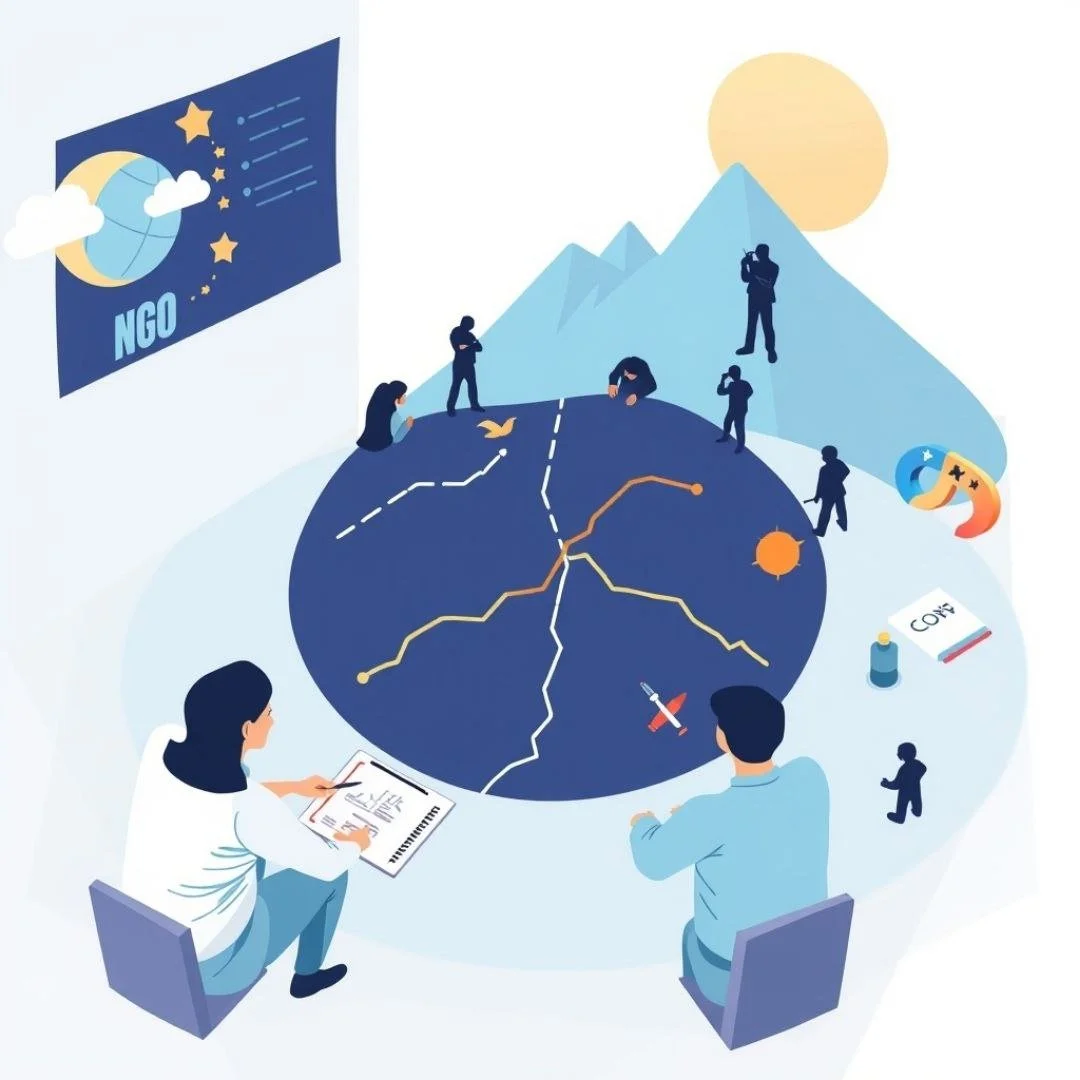Levels of Planning
Which levels of planning exist, and who and why needs them.
One of the most dangerous topics in discussing the work of NGOs is planning. Representatives of many organisations with whom I have had conversations about its necessity have immediately taken a defensive stance. And the main argument against planning was that in the conditions in which we live and work, it is useless to anticipate and plan anything: we need to be oriented to what is happening in the moment and react to it.
The argument is understandable, and I even partly agree with it. But only partly.
In order to understand when and what kind of planning is useless, we must first define what kinds of planning there are. I will propose 3 levels of planning and work:
- Strategical - the level of the organisation's vision, mission and goals
- Tactical - the level of programmes and projects
- Operational - day-to-day work
Strategic planning
Strategic planning is the process of defining an organisation's mission, values, priorities, and directions for growth. The result of strategic planning is a strategic plan. But in brief:
🔖 A strategic plan is a document that captures:
- the organisation's mission (i.e. what problem the organisation's activities solve),
- vision (what the world looks like when the problem is solved),
- goals (what changes must occur to achieve the mission and vision),
- objectives (by what means and tools these changes are achieved).
We need the strategic level to understand who we are and where we are going. It is important for us to see the direction. If we are on a hike and we know that we need to get to that high mountain over there, even if we encounter a lake or river on our way, we will still know that we need to get to that mountain. We may have to make a detour to get there, or even go backwards, but we will definitely remember that our ultimate goal is to get to the mountain, not just go around a body of water. Without a strategy, we run the risk of staying on that shore forever.
When strategic planning is unnecessary?
When the initiative is at the very beginning, in its infancy. When it is still unclear what competences will be in the team, what resources will be available, and how they will be managed. At first, you can work without putting yourself in a framework - this is normal.
When is a strategic level of planning necessary?
In all other cases: if there is a desire to grow, to develop, and to really solve problems. If the point of creating the initiative was to keep the neighbourhood chat going, then a strategy may not be necessary. However, a neighbourhood chat room may well become a base for big social changes - and that's where a strategy comes in handy.
Tactic planning
Tactics is the layer between the unattainable, ephemeral strategy, and day-to-day operations.
When you understand where you are going and why, you can pack your rucksack. Depending on how far you're travelling, you'll take the right amount of gear and provisions to make sure you have enough, and not to carry too much dead weight. You can, of course, throw in your rucksack whatever comes to hand, and hope that it will be enough, and on the way there will be somewhere to stock up more, but as if this is not the most reliable option.
Tactics are your means to your goals, your objectives. You open programmes and directions, choose how to work with staff and volunteers, think about how to build relationships with donors and partners, how and where to find money for work, etc. You choose exactly how you will bring the strategy to life.
When tactics are not needed?
For projects with a short implementation timeframe. If you realise that your project is something temporary, for a few months, and unlikely to last more than a year, you can limit yourself to operational planning. That is, our hike lasts one day on a well-trodden, well-equipped trail, we can afford to prepare for it however we want: someone will take the whole wardrobe with them just in case, and someone will beg for water from their mates - but within the framework of one day all this is survivable.
When tactics are needed?
When you have a strategic vision for the work and mission of the organisation, and you really want to achieve that mission.
Operational planning
Operational planning is a daily routine.
Who will do this or that, how will we achieve this and that? These are the little things that make up a successful project. But they must not just be done, but we must understand exactly how and what we are doing, and for what purpose. If we let these processes - even the smallest ones - go to waste, the whole essence and meaning of the project can be jeopardised.
☠️ Everyone needs operational planning. Without it, even a neighbourhood chat room will go stale, and no one will ever go camping.
All this is necessary if you want to really achieve something. If you just want to kill time, you can do without plans.
People who say that planning is impossible in our climate and situation usually mean something specific, or they have a mixture of the three in their heads, which, if not sorted out, only causes animal terror.
But even if we can't predict the weather or the terrain, we can:
✅ choose a direction and a landmark,
✅ try to prepare and predict possible disasters, changes, the likelihood of them happening, and how we will react to them,
✅ find each other on the ground, and go in the same direction.
Without this, a hike is not a hike, and with this, everything will definitely work out!
